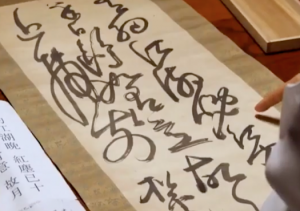
Her phone pinged and Mary Carol looked down to read the following text message:
Hey Mary Carol, I am thinking of you today. I know it is a very difficult and sad day for you. Today is his death day. Your husband and my best friend left us two years ago.
As she read the text, Mary Carol was not sure how she felt. She was not sure how she was supposed to feel. Actually, that’s not true; she felt guilty. It’s not that she hadn’t remembered that it was the anniversary of his death, it was that when she received the text, she was enjoying a happy peaceful day with one of her best friends. Her friend noticed the change in Mary Carol’s demeanor and asked her what was wrong. Mary Carol shrugged and showed her friend the text.
Now it was her friend’s turn to feel guilty as she looked at Mary Carol and said, “I’m sorry, I forgot. I knew it was around this time of year, but I did not remember his actual death date.” Together they fell silent, and then they went right back to what they had been doing—catching up with one another and going back to their activity.
After a while, Mary Carol told her friend that she wanted to make a phone call. She realized that she needed to touch base with her deceased husband’s best friend. She believed that the text was as much for him as it was for her. On that day, she had plans and felt strong and protected. But what about her husband’s best friend? That text was very possibly his way of reaching out and saying, “Hey, I am sad, today I miss my best friend.” And sure enough, that short phone call was beneficial to both of them, a strengthening of their bond, and a reminder of someone they loved.

Later, Mary Carol would have plenty of time to reflect on her feelings and how she wanted to commemorate the death dates of her husband and her other loved ones. She learned that she did not necessarily feel the need to set aside time on the anniversaries of her parents’ deaths, or of her husband’s death, or of anyone’s death. On those days, she would remember. She would probably spend a few minutes in contemplation or dedicate some extra time in her meditation practice. Her preference was to live those days as if they were any other day, carrying about the business of life.
Some of her friends came from traditions that celebrate the anniversary of a death. Putting up pictures and creating an altar to show respect for the dead. During a time around the death day, they might have a special meal or cook some of the deceased’s favorite foods. Another friend used social media to post images from the past and to remind others that this was the time when her partner died. And yet another friend would refuse to interact with others because this was her time to be sad.
Do you see a pattern? The pattern is that we all find our own ways to handle death days. There is no one perfect way to recognize a death day. And with no one clear answer, you have permission to create your own ritual—or lack thereof. You also have permission to honor different death days in different ways, perhaps baking something special on your mother’s death day and watching your father’s favorite movie on his death day. And maybe next year, you do the exact same thing, or nothing. It does not matter how many years it has been. Let your feelings guide you. Give yourself some loving-kindness and compassion.

How can we best support one another? With loving-kindness and compassion and by selecting actions with the intention of caring for one another. If you know that your friend has a death day approaching, but you are not sure how they are spending this day, reach out from a place of respect. If you feel that you have the type of relationship where you can ask, “Hey, what are you doing on your father’s death day?” Then do so. If you feel uncertain, then send a card, or drop off a meal or some treats or meet for a walk or coffee. Maybe you send a text, like this one,
Hey Mary Carol, I am thinking of you today. I know it is a very difficult and sad day for you. Today is his death day. Your husband and my best friend left us two years ago.
Most importantly, seek to suspend all judgment. Your way of handling a death day, is your way. When it is your turn, you will honor your loved ones the best way that you can, and I hope that your living friends and family respect your way, with love and compassion.
See more
Margaret Meloni: Death Dhamma
The Death Dhamma Podcast (Margaret Meloni)
Related features from BDG
What You Have Is Now
Rebirth and Right View: A Personal Journey
Embrace Your Grief
Related videos from BDG
The Death Dhamma Podcast Season 1
The Death Dhamma Podcast Season 2












